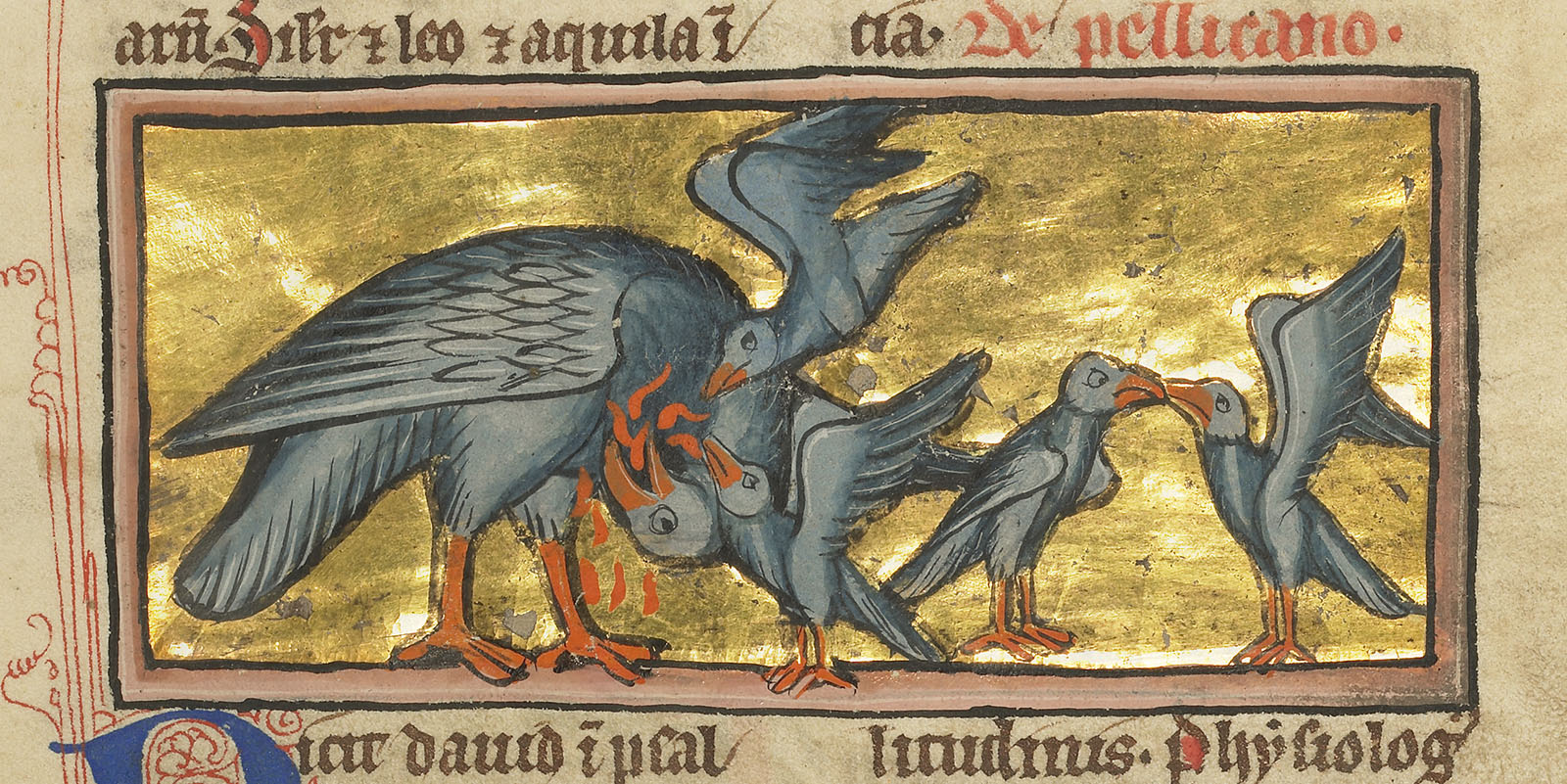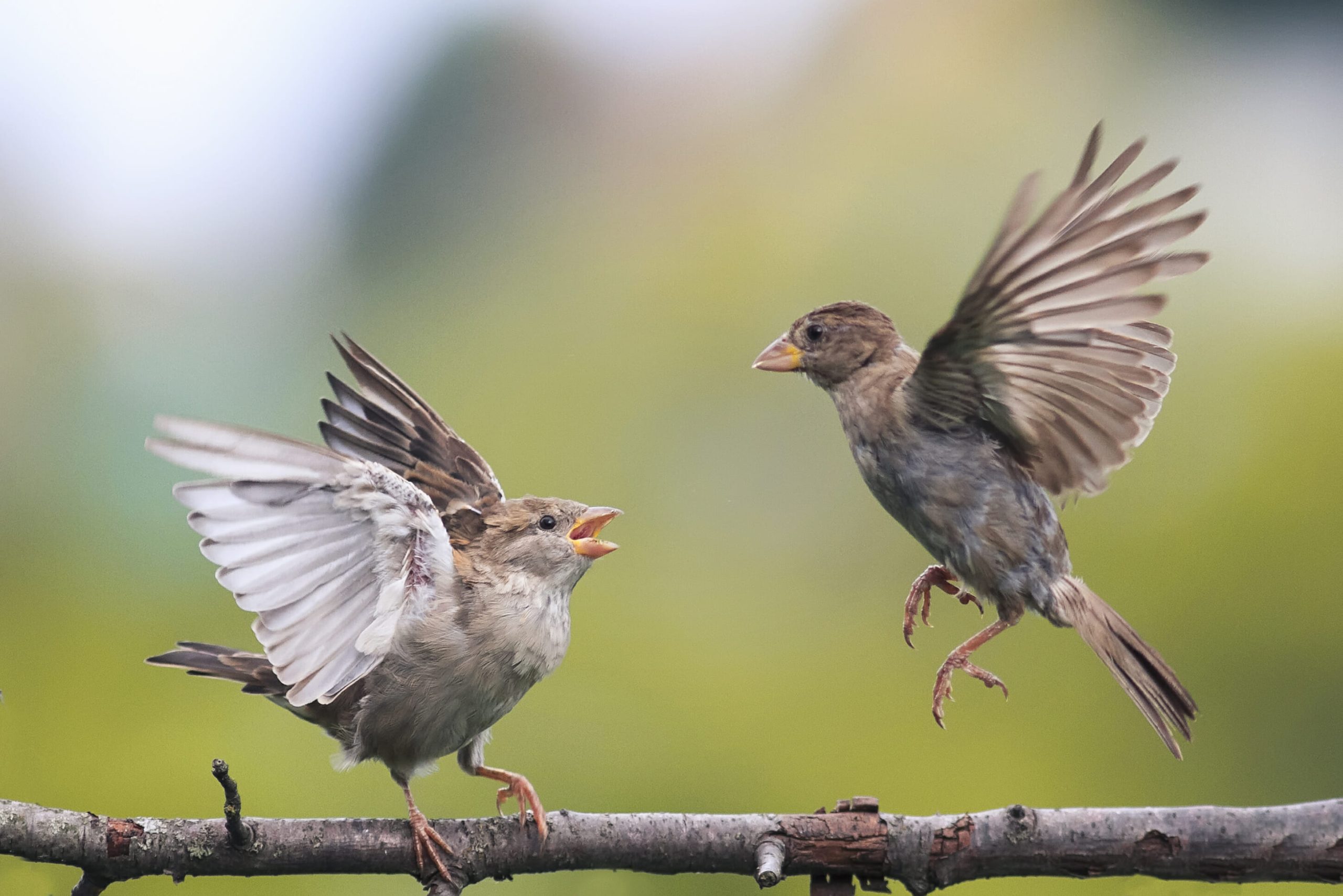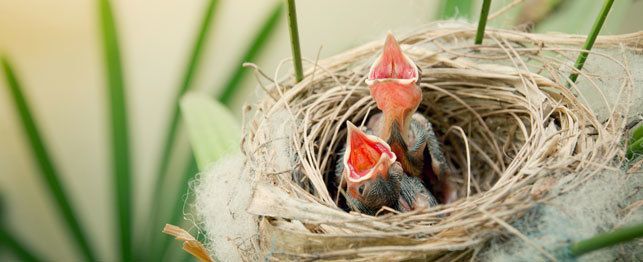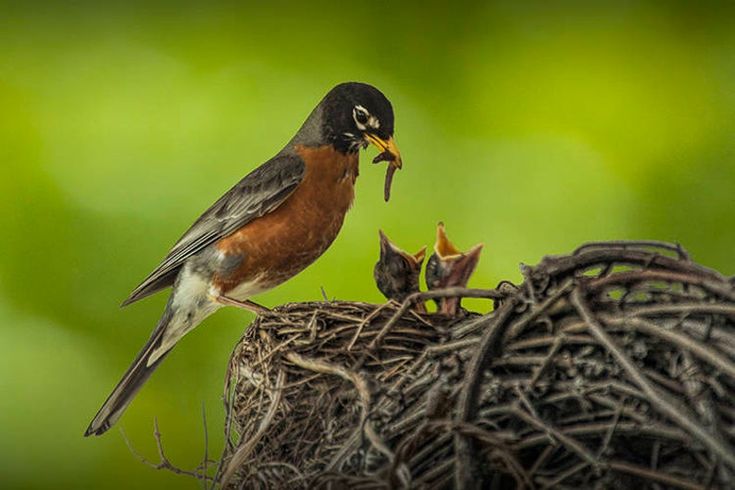Does Mother Bird Abandon Her Babies? All Traits & Symbolism of Mother Bird
It is not uncommon to see a mother bird abandoning a baby bird, even if it has been abandoned by its parents. Sometimes the baby is injured or is sick and the mother is unable to show that it needs food.
Why Mother Birds Abandon Their Young Babies

This will cause the mother to build a new nest, where it can provide food to the babies. Other times the parent bird is too tired or distracted to care for the baby. No matter the cause, it is common for a mother bird to leave the eggs unattended.Have you ever wondered why mother birds abandon their young? This happens for a variety of reasons.
Lack of time to raise
Sometimes, parents simply don’t have time to raise their babies and will choose to abandon them instead. Other times, the babies are left unprotected on the ground because the mother is too busy for them. Occasionally, a bird may abandon her young for a variety of reasons. For example, a mother may leave her young because she’s starving or if she’s apprehensive about the amount of food the babies will get.
Does mother bird kill her baby?
In rare instances, the mother may even kill her young in order to protect them from predators. However, in most cases, the “abandoned” babies are actually healthy fledglings who are being monitored by their parents.
For taking care of other young babies
Although the mother bird may have moved on to take care of other young, the baby bird is still being watched by its parents. They will return soon. And when a bird does leave their young, they do so because it has been spotted by another predator.
Disturbance of nest
There are several other reasons why mother birds abandon their young. Some species, including robins, may abandon their young if it feels that humans are disturbing the nest.
Abandoning due to any danger
Others may choose to leave if they feel a predator is near. If the mother feels that her nest is in danger, she might also kill her baby, especially if it was sick or had fledglings. Ultimately, a bird will choose to protect the health of her offspring rather than risking the survival of the rest of the family.
Due to predators
One of the most common reasons why mother birds abandon their young is due to predators. In this scenario, the mother bird is more likely to be avoiding predators by abandoning the nest. She may be afraid of the predators that are circling around, so she leaves her young out in the cold. Or she might be trying to protect the rest of the flock. These are common reasons why a mother bird abandons her young.
Loosing confidence in proper taking care of babies
While mother birds may abandon their young because they don’t feel they can care for them, they will always leave the nest if they see their young being handled or touched. Because most birds are poor smellers, they will not be able to recognize them if they are being threatened. By touching their young, a parent bird will not abandon their young. While it may seem that a mother bird has abandoned their young, it is not. It will only spend most of its time foraging for food.
Survival of chicks in the nest
The main reason why mother birds abandon their young is to increase the chances of survival of the other chicks in the nest. They will not feed a baby that falls out of the nest, so they will not feed it. This means that some birds will be forced to abandon their young for lack of food, so it’s best not to disturb them. It’s illegal to touch them. If they do, they will flee to another location to avoid the dangers of the world.
Symbolism of Mother Bird

If the mother bird symbol has a meaning, it signifies action, respect and a desire to make a child happy.
Greatness
In addition to that, the symbol shows that you will be a great mother and your children will succeed in life. If you’ve ever seen a bird’s egg, it’s unlikely it was the mother’s idea to abandon her baby.
Unconditional Love
While we may not understand why she’d do this, a mother’s unconditional love and protection has helped them to be so successful.
Sense of Strength
The mother bird symbolizes a happy life, but it also represents the challenges we face. This symbol evokes a sense of strength because of the difficulties we face.
Greatness
It also implies that each mother is a great woman, regardless of her age. The challenges she faces will help her kids grow up to be strong, and she will protect them. It’s important to remember that every mother is a great person and that no matter what your background is, you can find a way to change the lives of others through your ambition.
Happy Life
In general, mother bird symbolism represents a life that is both comfortable and fulfilling. It implies that every mother deserves to have a happy and fulfilling life. The message of mother bird symbolism is that we should love our children and each other as our mothers do. Our ambition will not only change our own lives, but the lives of others. If we can do this, we’ll all be happier and healthier. This is because we’ve taken a big step in our lives.
Protection
The mother bird represents a mother who protects her children. The mother bird symbolizes the love of a mother. It protects her young and will not abandon them. However, she will not abandon her child if she feels threatened. It is a good sign to be proud of a parent and to have respect for their child. If your child is born into a loving family, she will be grateful. She will be a good role model and a great person.
Courage
The mother bird symbol is a great inspiration. It represents a life of fulfillment and courage. It means you will always have a mother in your life. It is important to love your children with respect. They will never know what they’re missing until they’ve had a mother. They’ll have a mother who can help you in any way they need. They will be proud of you. Keeping their spirits happy and content is a great motivation for anyone.
Peace
The mother bird symbolizes peace, love and sacrifice. It is the companion of Venus, the Roman goddess of love. The mother bird has a great symbolic significance for Christian faith. In Christian art, the dove is often associated with the Virgin Mary.
Selflessness & Compassion
It symbolizes selflessness and compassion, and is a great symbol for the Virgin. There are many reasons to honor a mother in your life. So, if you’re looking for a beautiful gift, give it to your mother.
Motherhood
The mother bird is a great example of motherhood in the wild. She provides everything her chicks need to survive. When she’s finished providing for them, she dissociates from her chicks, leaving them to fend for themselves. It’s important to remember that the mother hen has the highest regard for her young, and will never abandon them. And she has her own children, too. It’s also important to respect the environment in which they live.
Fertility
Another reason to honor a mother bird is its connection to the Mashiach. The mother bird is a symbolic figure of fertility, which is the first fundamental of natural motherhood. It was a symbol of fertility and is depicted on Egyptian temples and Egyptian tombs. Ancient cultures considered it unlucky to kill a swallow because it was considered a symbol of the heavenly woman. A woman is a symbol of her children, so a vulture is a good choice for a family to have.
How does a mother bird feed her babies?

When watching a mother bird feed her babies, you may notice a pattern: she eats first, then puts the food in her babies’ mouth, then digests it. When they’re hungry, baby birds open their mouths wide and screech loudly, so that the mother bird can easily get in enough food for them. Insects are the primary food source for most birds, and the louder they screech, the more food they’ll get.
How does mother bird get to know babies are hungry?
The method of feeding birds varies from species to species, but it’s usually similar to that of a mother’s child. A baby bird’s mouth is open when it’s hungry, and it screams when given more food. Similarly, a mother’s baby can’t tell which one is starving or doesn’t eat much, but she can remember which one is begging. She will put the food in the loudest screecher’s mouth.
How does the mother bird know which baby bird to feed next?
Mother birds feed their babies at least four times a day, sometimes more. It’s a good idea to make sure they’re getting enough protein-rich foods, as the mother birds will scream in response to less food. It’s a good idea to keep this in mind when you’re watching a mother bird feed her baby. You’ll have a better chance of seeing the parents feeding their young than you might imagine.
How many times mother bird feed her babies?
Some birds feed their babies up to four times a day. Their bodies don’t have the ability to store food, so the food they do eat has to be highly digestible. This makes the food easier for the mother to digest, which is why you can see them eating more than once. But remember that the food they eat is a mixture of seeds, nuts, and berries. In other words, the mother is ensuring that her baby gets enough protein to stay healthy.
While songbirds feed their babies four to 12 times a day, the method used by a mother bird varies from species to species. During the normal season, they feed their babies by consuming seeds, while in breeding season, they feed on insects. While their diets vary, the mother bird will give the food to the baby that screams the most loudly. The baby birds also eat a lot of seed.
Feeding depends on species
In contrast, the way a mother bird feeds her babies will vary from species to species. A mother bird will feed her babies four to 12 times a day, depending on the number of eggs. In addition, she will provide food that is rich in protein, fat, and carbohydrates. During the breeding season, she will also give her babies a variety of seeds. When the baby birds are older, they will also receive seed.
During the breeding season, a mother bird will feed her babies four to 12 times a day. The mother bird feeds her babies by eating insects. It eats the food that her baby can’t digest. After the baby has grown, it’ll have its own digestive system, and will be able to chew the food itself, so that it can survive without human interference. This method has a very positive effect on the overall health of a baby.
Do Birds Store Food?
In contrast to humans, birds can’t store food. They only store a small amount. They cannot even hold food in their mouths. A mother bird will be feeding her babies four to 12 times a day for the rest of their lives. As a parent, you can’t blame a mother bird for being distracted by their babies’ crying. A busy mom will eat more often than the baby. They’ll also remember which baby birds scream for food and will make sure that the loudest one gets it.
What do baby birds eat?
Mother birds watch their babies closely and often feed them at regular intervals. However, what they feed their babies depends on the species they are. For example, a perching bird will likely feed her babies with nuts, seeds, and berries. But a finch will be more apt to feed her baby a worm or a small insect, since they need a larger amount of protein than an adult. In the normal season, finches and cardinals eat seeds and other protein-rich foods, but during the breeding season, they’ll switch to smaller, insect-based foods.
Digestion of food
The mother bird will also feed her babies based on their cries for food. The babies are usually fed according to what the mother bird has eaten. During the first few days after hatching, the baby birds cannot digest food. Hence, the mother bird will feed partially digested food to them. The baby birds no longer experience digestion problems. Instead, they will start to eat a wide variety of food.
The Relationship Between Mother Bird and Baby Bird
The relationship between a mother bird and her baby bird is an extremely important part of the mother-child bond. Both are fiercely protective of their young and need constant attention. As a result, both the mother and baby bird must eat equally. In most cases, babies will feed on insects, which fill up the protein needs of their young. In the absence of their parents, the child will be hungry all the time and will therefore need to eat every 15 to 20 minutes to survive.
The mother bird feeds her babies according to their crying. She is the only one who can tell her baby when it is hungry, so the parent will always feed it. Moreover, she will feed her babies based on how they are eating. Generally, the mother will eat the same as her baby birds. The children, on the other hand, will eat the same food as the mother. Besides, they will also feed insects to their parents, which will provide them with the protein that they need.
How does mother bird take of nutritional needs of baby birds?
A mother bird will feed her baby at least four to twelve times a day. It is very important that she provides enough protein for the baby to grow healthy. A mother bird is constantly monitoring the baby’s nutritional needs. She will also provide the necessary nutrients. However, she cannot feed the baby as frequently as the mother does. The mother will be forced to rely on food from her own food sources and the baby will not grow up to fly.
What does mother bird do when baby birds cry?
The mother bird’s job is to feed her babies. She will not allow her baby to cry for food until the last one is ready. If the baby is crying, the mother bird will provide food. The father will feed the baby bird when the baby is hungry. The child will eventually get more food than the mother can give her baby. The mother bird will not feed her child if it does not feel well. It will do the opposite and may even kill the baby.
Does mother bird gives equal food to all babies?
While the method of feeding the baby bird varies, the mother bird tries to feed each of the babies the same amount. The more the baby birds scream, the less the mother bird will give them food. It is the same with a mother and a father. While the mother bird is giving the baby a bit of food, the father will take care of them when they’re hungry. The father will make sure that the baby gets enough food to survive.
The success of mother bird
The mother bird’s success depends on how many of the babies survive and how many survive. While some birds have the tendency to eat their babies’ food, the mother bird’s success depends on how many babies survive. The mother bird needs her babies to survive. If the baby isn’t able to feed itself, the baby will die. A healthy baby will have no problem consuming its own food, and the baby will not suffer from the same problems that a baby would.

The process of a mother bird teaching a baby to fly is remarkably similar to the way a baby child learns to walk. Imagine a parent holding something of value to the baby and another parent supporting them. The baby will leave the first parent to reach the valuable object, thereby learning to talk and fly. As a result, the mother bird teaches the baby to fly without the use of a leash.
Pushing Babies
This behavior may seem unfair to some people, but it is actually quite natural. Most birds teach their young by pushing them out of the nest and defending their territory. The parent will then watch over the offspring from a distance, and the offspring will eventually land on the ground. This is the same process that humans take when we help our babies learn to walk, but in a different way. We assist our babies in learning to fly by pushing them onto the ground and encouraging them to walk by themselves.
Do baby birds need to be taught to fly?
Many people think that baby birds don’t need to be taught to fly, but it is actually the opposite. In fact, most babies learn to fly when they are taught by their parents. In addition to being fed by their parents, baby birds also need their parents to help them digest their food. They must eat food while their parents are nearby. When a baby bird is hungry, it opens its mouth wide and loudly. A louder screeching will get them more food, and the louder the screeching, the better.
Teaching through voice
A mother bird’s voice is an important tool for teaching her babies to fly. It is not unusual for a bird to sing its enchanting song in order to communicate its needs. This is especially true if it is a baby bird that has a cold. A sick baby bird may not be able to show its needs to its parent. Another useful tool for teaching your baby to fly is a small mirror. It may be difficult to see a small hole, but a big mirror helps to show how to flutter your wings.
The way a mother bird teaches her babies to fly is important to them, as it gives them more confidence and makes them more resilient in their competitive world. However, the actual method may differ depending on the species. For instance, a mother bird may use a louder voice to convince the baby to fly if she is hungry. Some species will also make a loud screeching sound to signal that it is hungry.
Vocalization of mother birds can help baby to learn to fly
Similarly, a mother bird’s vocalization can help the baby to learn to fly. When a baby bird has the desire to fly, it will try to mimic that behavior. A mother bird will not allow her baby to attempt to fly if she is too tired. If she is fatigued, she will simply stop doing what she is doing. It will be too stressful. A mother bird will push her baby to fly if she is too tired.
A mother bird’s vocalization can help babies to fly. This can help the baby bird to learn the skills it needs to survive in the world. For example, the vocalization of an eagle’s parent will teach her baby how to fly. She will push her young out of the nest when they are ready to do so. It will also teach them to fly if they have the courage to leave the nest.
Courage for first flight
The first baby bird grew up very active and always wanted to learn to fly, but he didn’t have the courage to take flight. The mother bird decided that he should start walking and hopping instead. The baby would flail his wings clumsily, but still be able to sustain a few seconds of flight. After a couple of days, the baby bird was ready to leave the nest. Unfortunately, a cat managed to capture the little bird and injured it. The mother bird didn’t want to give up on her little boy, and her efforts ended up with an euthanasia.
Flapping the Wings
In a mother bird teaching baby to fly, the baby bird must first learn to flap its wings, or else it will fall from the nest. During the first few days, a baby bird’s wings will grow to a full size. It will also have to develop a strong backbone and be able to stay upright. As a result, a mother bird will never give up on her baby.
Die or Fly
A mother bird carries her baby when it flies and dives. In this way, she can help her baby learn to fly. The mother bird has already proven that her baby is able to fly, and it’s not just the first time. By focusing on the process of learning to fly, the mother bird is preparing her offspring for the big world. If a mother bird can’t fly, it will die.
Teaching to Swim
A mother bird teaches her baby to fly by encouraging her baby to fly, it will not have to do so herself. In fact, she has to encourage her baby to fly. A mother bird will not teach the baby to fly unless it is comfortable with it. The parent will not let it fall. And she will teach it to swim. The mother bird will then teach her baby to swim. It will learn to glide on its own.
The mother bird teaches her baby to fly by flying with it. She will teach her baby to flap its wings and then teach it to fly. The child may not realize that it needs to learn to fly, but if the mother bird doesn’t fly, she won’t let it learn. The flight will then be short and she will end up hitting the ground. It will then be difficult for the parent to catch the baby when he falls.
Why Does a Mother Bird Eat Poop?

Why does a mother bird eat her baby’s poop? This question is often asked by the general public, and the answer is both interesting and complex. In some cases, the behavior is related to housekeeping. While baby birds are too young to learn proper housekeeping, the poop from a previous feeding serves as a useful treat for the newbie. Other times, the birds eat their own feces in order to conserve energy and time.
Nutrients in Poop
While babies don’t digest their food completely, their poop still contains nutrients, and therefore, mother birds eat it. Some of them even recycle it in order to make more baby food for their own young. However, some babies don’t move to the nest to fecate on their own. The mother bird then eats the poop to maintain sanitary conditions for her nest.
Poop is source of extra nutrition
Some birds eat their baby birds’ poop. This is not only because the birds are cleaner than humans, but also because feces from the young serve as a source of extra nutrition for the mother. Another reason why the mother birds ingest baby bird poop is because the babies are not able to survive without the nutrition from the poop. In addition to keeping the nest clean, the baby birds also help clean the nest by removing the poop.
Does color of the poop indicate the health of baby?
The feces of baby birds are usually green. A dark green to black poop indicates that the mother bird is not eating. Similarly, the poop of an unhealthy bird is cream colored, yellowish, or off-white. Its droppings can vary, depending on the diet of the mother bird. It’s important to note that the color of the poop does not indicate how healthy the baby bird is.
Mother birds eat healthy poop
In the wild, mother birds also eat the poop of their baby birds, but they don’t eat them if they are healthy. Their babies don’t digest the food completely and the poop is still full of nutrition. If the baby bird’s poop is unhealthily colored, the mother’s diet is unhealthy. It will kill its babies if it’s not hungry or otherwise ill.
Cleaning the nest
The reason why mother birds eat their babies’ feces is that they need to clean their nests. This is why they poop a lot and recycle the nutrient-rich sacs of their babies. The poop from the baby birds also helps them stay healthy. Hence, it is beneficial for the baby. The mother bird eats her baby’s feces to feed her babies.
To keep baby healthy
The mother bird eats the feces of her baby to keep the baby healthy. The feces of a baby bird are green, but a stork’s droppings are black. Its feces are yellow or cream-colored. They can vary in color, depending on the diet of the mother bird. The only thing that matters is that the baby is healthy.
Mother birds eat poop to protect babies from diseases
During the first few days after hatching, the mother bird will eat its babies’ feces to protect them from disease. The baby will also eat its mother’s poop if it catches her poop on her way. It’s also important to keep a close eye on your bird’s feces. Ensure your bird is healthy. If a baby bird has an infection, it may have died due to improper handling.
Why Would a Mother Bird Leave the Nest?

There are several reasons why a mother bird abandons a nest. One is to improve the chances of survival of her other chicks. The other reason is because she senses that she’s doing something wrong. She prefers to provide better nourishment to her other healthy chicks than to feed the sick one. When she leaves a nest, she can’t feed her young. A baby bird’s survival is at stake.
Recycling the nest
The reason for a mother bird to leave her nest is not necessarily a good one. However, the chances of a healthy chick are higher if the mother has more than one chick. Despite the obvious risks of disturbing the nest, it’s important to remember that many species of birds recycle their nests. In addition, you should not attempt to interfere with the life of a bird. You are not worth putting yourself in the same situation as a parent.
Sickness
The main reason a mother bird leaves the nest is because she is sick. Often, she kills the sick baby bird and then leaves the rest of the eggs in her nest. When this happens, she’s not protecting her babies, but she is protecting the other birds. A mother bird won’t leave the nest if she’s ill. Whether or not a mother bird leaves the egg, the baby will be safe from predators.
Something wrong with baby bird
Another reason a mother bird abandons a nest is because she feels that there’s something wrong with her baby bird. Her baby is unable to survive and may not have survived for long. She is also afraid of predators and will not feed it. This is why a mother bird leaves the nest: she is protecting her babies from predators. The other reason for leaving the nest is that she is protecting her own young.
What happens to baby bird when mother bird leaves?
Another reason why a mother bird leaves her nest is because the baby is too small for the mother to properly care for it. When the baby bird falls out of the nest, the mother bird will not feed it. She will not take care of her baby if she doesn’t find the food she needs. And, the parents will not tend to their babies if you’re too close. This may lead to the baby bird’s death.
Better chance of survival
Another reason for a mother bird to leave her nest is because she wants her chicks to have a better chance of survival. If a mother bird is having trouble keeping her baby birds warm, she’ll leave them in their nest. Aside from a baby bird’s health, the mother will also leave her nest in order to protect her young. In addition, the mother’s presence will cause the baby bird to leave the nest.
For more articles visit: Flashy Info

